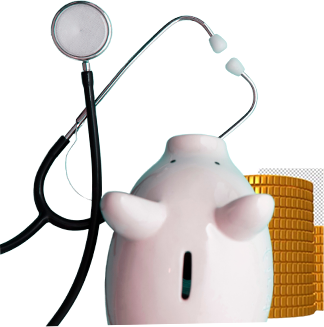PERSONALIZED DIET PLAN FROM
Best Dietician and Nutritionist for Food Allergies

Contact Us
Food allergies arise when your body’s immune system reacts negatively to a specific protein found in certain foods. Your immune system will initiate a trigger response by creating antibodies to fight these foods. These antibodies can cause reactions – allergic reactions across the skin, GI tract, respiratory tract, cardiovascular system, and more. Dietician nutritionists play an important role in managing allergies caused by different foods. Having a chain of nutrition clinics in India, Qua owns a team of dieticians and nutritionists to treat allergies through strict dietary regulations and proper nutrition.
Our nutritionists for food allergies prescribe you to undergo certain tests to determine the specific reasons behind the condition. Following this, we recommend dietary modification guidelines. Our dietitian with a specialization in food allergies can help you identify foods that trigger your allergic reactions, manage symptoms, and create a personalized diet plan.

Why Work with a Nutritionist for Food Allergies?
Some food allergies can be life-threatening! Managing these allergies by yourself can be a daunting task as well as distressing. Working with a nutritionist for food allergies can help you by giving you the right information about allergies and providing you with a balanced allergen-free diet.
Allergen Identification: A food allergy nutritionist can help you identify the food allergens that are affecting your health through detailed allergy tests. They will make sure to help you steer clear of foods that contain allergens that can affect you.
Personalized Diet Plan: A nutritionist can help in curating personalized diet plans to help with your dietary and lifestyle requirements. This helps ensure that you don’t come in contact with foods that are allergic to you but attain the required nutrition through healthy substitutes.
Manage Symptoms: Nutritionists can help you with proper information such as cross-contamination prevention, flare-ups, and what to do in an emergency where you have unknowingly consumed allergic foods.
Proper Guidance: With guidance from a nutritionist, you can learn to read good labels, identify allergens with ease, and empower you to navigate situations such as dining out or dining at events with ease.
Proper Nutrition: Avoiding certain foods can come with nutritional deficiencies. This can be prevented with help from a nutritionist who’ll make sure that you have an appropriate intake of vitamins, minerals, and other components that are healthy for you.
Types of Tests for Food Allergies
Identifying food allergies is critical for avoiding allergens, managing symptoms, and maintaining a balanced and healthy diet. Find below the common types of tests used for finding out food allergies:
Skin Prick Test: Skin Prick Test involves exposing yourself to multiple allergens through pricks – typically on your forearm. Bumps and redness on your forearm can indicate potential allergies.
Blood Test: By exposing your blood to the allergens, the antibodies in your blood can react with the specific allergens, exposing the specific foods.
Oral Food Challenge: A nutritionist for food allergy can supervise you over the oral food challenge which involves the consumption of small amounts of foods to monitor for allergic reactions.
Patch Test: This test involves putting a patch containing suspected food allergens on your skin for almost 48 hours. Allergens can cause swelling and bumps, which will be monitored by the nutritionist.
Component Test: The component test is a more advanced blood test done to identify the specific proteins that cause allergic reactions and help in finding better substitutes.


Common Food Allergies and Their Impact
Food allergies vary from person to person as each immune system reacts differently to different proteins in the food. Each individual may experience different levels of reactions, from small allergies to life-threatening ones. Find below the common food allergies:
Milk: Allergy towards milk are typically found in children and are found to be persistent in some adults. Milk allergies can give rise to skin rashes, digestive problems, and even anaphylaxis.
Peanuts: Peanut allergy is one of the most widely affecting allergies which can cause severe and life-threatening allergic reactions such as anaphylaxis.
Shellfish: Crabs, shrimp, oysters, and mussels are some of the common shellfish that cause allergies. It can arise in childhood and persist till adulthood with symptoms such as skin rashes, anaphylaxis, and digestive issues.
Eggs: Egg allergies are mostly found in kids, with symptoms such as difficulty in breathing and itchy skin.
Gluten: Gluten intolerance is when your body is gluten-sensitive. It is a protein present in wheat, barley, and rye
Soy: Soy allergies cause skin rashes, nausea, vomiting, and even respiratory problems when it comes to extremes.
Key Strategies for Managing Food Allergies
Managing allergies is a heavy task, which can be simplified with the help of a nutritionist and dietitian for food allergies. Let us take a look at how the major strategies to manage and overcome food allergies:
Proper Allergy Testing: It is important to have a proper diagnosis of your food allergies. Be it through multiple tests such as skin tests, blood tests, or oral tests, finding the exact allergen is instrumental in managing your allergies.
Keeping yourself Educated: Learn all the specific components of a food that causes allergy to you. Make sure you learn the proper nomenclature of the components to identify them on the labels/ingredients of foods.
Allergy-Free Diet: Curate a diet plan that keeps you away from the foods that cause you allergies. However, you should make sure that you include the appropriate substitutes that provide you with the required nutrients, vitamins, and minerals.
Emergency Medications: Make sure to keep emergency medication for your allergies on hand, all the time. Inform your friends and family on how to use the medicine and carry written information just in case.
Inform Family and Friends: For comprehensive allergy management, you should make sure to inform your family, friends, and people close to you about your allergies, the risks, symptoms, medicines, and what to do in case of emergencies.


Why a Personalized Diet is Important in Allergy Control
A tailored meal plan is essential in managing food allergies as it ensures each individual gets a healthy balanced meal in consideration of their allergies, nutritional & lifestyle needs, and requirements. A well-experienced nutritionist with a specialization in food allergies can help curate a personalized meal plan that suits your needs:
Nutritional Balance without Compromise: Eliminating foods that contain allergens can lead to nutritional gaps. A personalized diet can help you find the right alternatives that suit your individual nutritional requirements and lifestyle needs.
Manage Multiple Allergies: Some individuals may experience multiple food allergies. Managing multiple allergies alone can be complex, but easily accomplished with a tailored diet from a nutritionist for food allergies.
Cross Contamination: Cross contamination is a subtle by life threatening factor which plays a major role in food allergies. A personalized meal plan ensures that cross-contamination is eliminated and no trace of foods that cause you allergies come in contact with you.
Diet Modification: Allergies appear and disappear randomly and may even evolve. A personalized meal plan makes it easy to adjust as needed, across longer periods.
Quality of Life: A personalized meal plan is a simple solution to complex problems that are caused by food allergies. A proper meal plan helps in providing a sense of security and control over your allergens.
Why Choose QUA Nutrition for Allergy-Safe Nutrition Plans?
At Qua Nutrition, we understand the challenges faced by individuals managing food allergies. Our team of specialized nutritionists and dietitians is committed to providing personalized nutrition plans to help you live a healthier, allergy-free life. We focus on identifying trigger foods, creating allergen-free meal plans, and ensuring you receive the proper nutrients to support your health. With a strong presence in India’s major cities and online consultations spanning the globe, we help individuals adopt healthier habits through personalized dietary guidance.
We believe in a comprehensive, individualized approach, ensuring that each meal plan we create aligns with your health goals and supports your overall well-being as well as lifestyle requirements. If you’re ready to take control of your food allergies and improve your health, contact our consultants today.

Q: What are the most common food allergies?
A: The most common food allergies include milk, peanuts, shellfish, eggs, and soy. These allergies can cause a range of symptoms from mild reactions like skin rashes to severe reactions like anaphylaxis.
Q: How can a nutritionist help with food allergies?
A: A nutritionist specializing in food allergies can help you identify trigger foods through allergy tests, create a personalized allergen-free diet plan, guide you on managing symptoms, and ensure that you receive proper nutrition even when avoiding certain foods.
Q: What tests are available for food allergies?
A: Common tests for food allergies are skin prick tests, blood tests, oral food challenges, patch tests, and component tests. These help identify specific allergens and assist you in managing appropriate allergies.
Q: Can a personalized diet plan help with multiple food allergies?
A: Yes, a personalized diet plan can be especially helpful for individuals with multiple food allergies. A nutritionist can curate a meal plan that avoids allergens while ensuring you still get the nutrients your body needs.
Q: What should I do in case of an allergic reaction?
A: If you experience an allergic reaction, it’s important to follow your emergency plan, which may include using prescribed medications like an epinephrine injector. Always inform those around you about your allergies and how to respond in case of an emergency.


